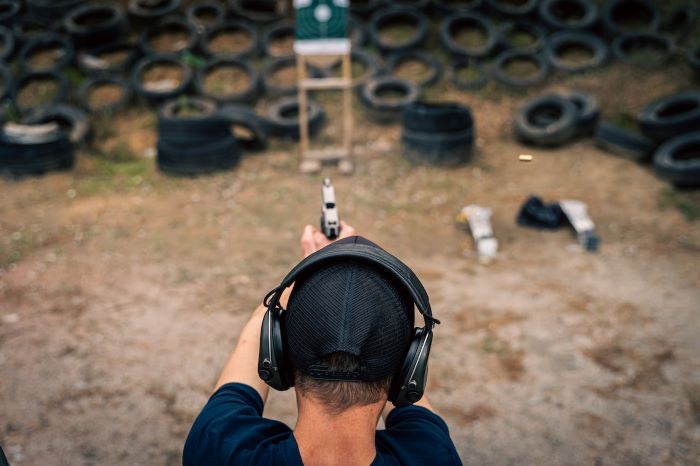The use of firearms for personal security is a topic that raises important legal and ethical questions in today’s society. While the right to bear arms is protected in many countries, the use of firearms for self-defense is a complex issue that requires careful consideration of both legal and ethical aspects. Here, we will discuss the various legal and ethical considerations surrounding the use of firearms for personal security.
I. Legal Considerations
A. Right to Bear Arms
In many countries, including the United States, the right to bear arms is enshrined in the constitution. The Second Amendment of the U.S. Constitution, for example, states that “the right of the people to keep and bear Arms, shall not be infringed.” This constitutional protection gives individuals the legal right to own and carry firearms for personal security.
However, the interpretation of this right has been the subject of much debate and legal scrutiny. Courts have had to balance the individual’s right to self-defense with the need to regulate firearms to protect public safety. This has led to various laws and regulations that govern the ownership and use of firearms, such as background checks, waiting periods, and restrictions on certain types of firearms.
B. Self-Defense Laws
Most countries have laws that allow individuals to use force, including deadly force, in self-defense, which may involve using firearms like the S&W Shield Plus. These laws typically require that the use of force be proportionate to the threat and that the individual using force reasonably believed that their life was in danger. The legal concept of “self-defense” is crucial in determining the legality of using firearms for personal security.
However, the application of self-defense laws can be complex and varies from jurisdiction to jurisdiction. Some states or countries have “stand your ground” laws, which eliminate the duty to retreat before using force in self-defense, while others require individuals to attempt to flee before resorting to deadly force. Understanding the specific self-defense laws in one’s jurisdiction is essential for anyone considering using firearms for personal security.
C. Concealed Carry Permits
In many countries, individuals who wish to carry a concealed firearm in public must obtain a concealed carry permit. These permits require background checks, training, and compliance with specific regulations. Obtaining a concealed carry permit is an important legal consideration for those who want to carry firearms for personal security.
Failure to obtain the necessary permits or carrying a concealed firearm without a valid permit can result in serious legal consequences, including criminal charges. Therefore, it is essential to understand the legal requirements and restrictions surrounding concealed carry in one’s jurisdiction.
II. Ethical Considerations
A. Responsibility and Accountability
One of the central ethical considerations when it comes to using firearms for personal security is the issue of responsibility and accountability. When an individual chooses to carry a firearm, they are taking on the responsibility of potentially using lethal force in a life-threatening situation. This decision carries significant ethical weight.
Ethical questions arise regarding the extent to which individuals are prepared and trained to use firearms responsibly and safely. Proper training and education are crucial to ensure that firearms are not used recklessly or inappropriately, which could lead to harm or death of innocent bystanders.
B. Moral Duty to Protect
Some argue that there is a moral duty to protect oneself and loved ones, which may justify the use of firearms for personal security. This perspective views self-defense as a fundamental human right, and the use of force, if necessary, as a morally justifiable means of preserving life and safety.
However, the ethical challenge lies in determining the threshold at which the use of lethal force becomes morally justifiable. Different ethical frameworks and cultural norms may influence individuals’ perspectives on this matter, leading to varied opinions on when it is ethically acceptable to use firearms for personal security.
C. De-escalation and Conflict Resolution
Another ethical consideration is the importance of de-escalation and conflict resolution techniques as alternatives to using firearms for personal security. Many ethical frameworks emphasize the value of peaceful resolution and non-violent means of resolving conflicts.
Advocates for de-escalation argue that individuals should prioritize efforts to defuse tense situations, communicate effectively, and avoid resorting to lethal force whenever possible. This perspective highlights the moral obligation to seek peaceful solutions and minimize harm to all parties involved.
D. Risk to Innocent Bystanders
Using firearms for personal security carries the inherent risk of injuring or killing innocent bystanders, even if one’s intentions are to protect oneself. This ethical concern raises questions about the potential consequences of using firearms in crowded or public places, where the risk to others is heightened.
Ethical decision-making in such situations requires careful consideration of the potential harm to innocent individuals and the extent to which lethal force is a justifiable response. Minimizing the risk to innocent bystanders should be a paramount ethical consideration when contemplating the use of firearms for personal security.
Conclusion:
The legal and ethical considerations surrounding the use of firearms for personal security are complex and multifaceted. While individuals have the legal right to bear arms in many countries, they must navigate a complex web of regulations and self-defense laws. Ethical considerations, such as responsibility, accountability, and the moral duty to protect, add further complexity to the decision-making process.
Balancing the legal right to self-defense with ethical responsibilities requires careful reflection and a commitment to responsible firearm ownership. Training, education, and adherence to the law are crucial components of using firearms for personal security in a way that is both legally and ethically sound. Ultimately, the decision to use firearms for personal security should be made with a deep understanding of the legal and ethical implications, and a commitment to upholding both individual rights and societal safety.





